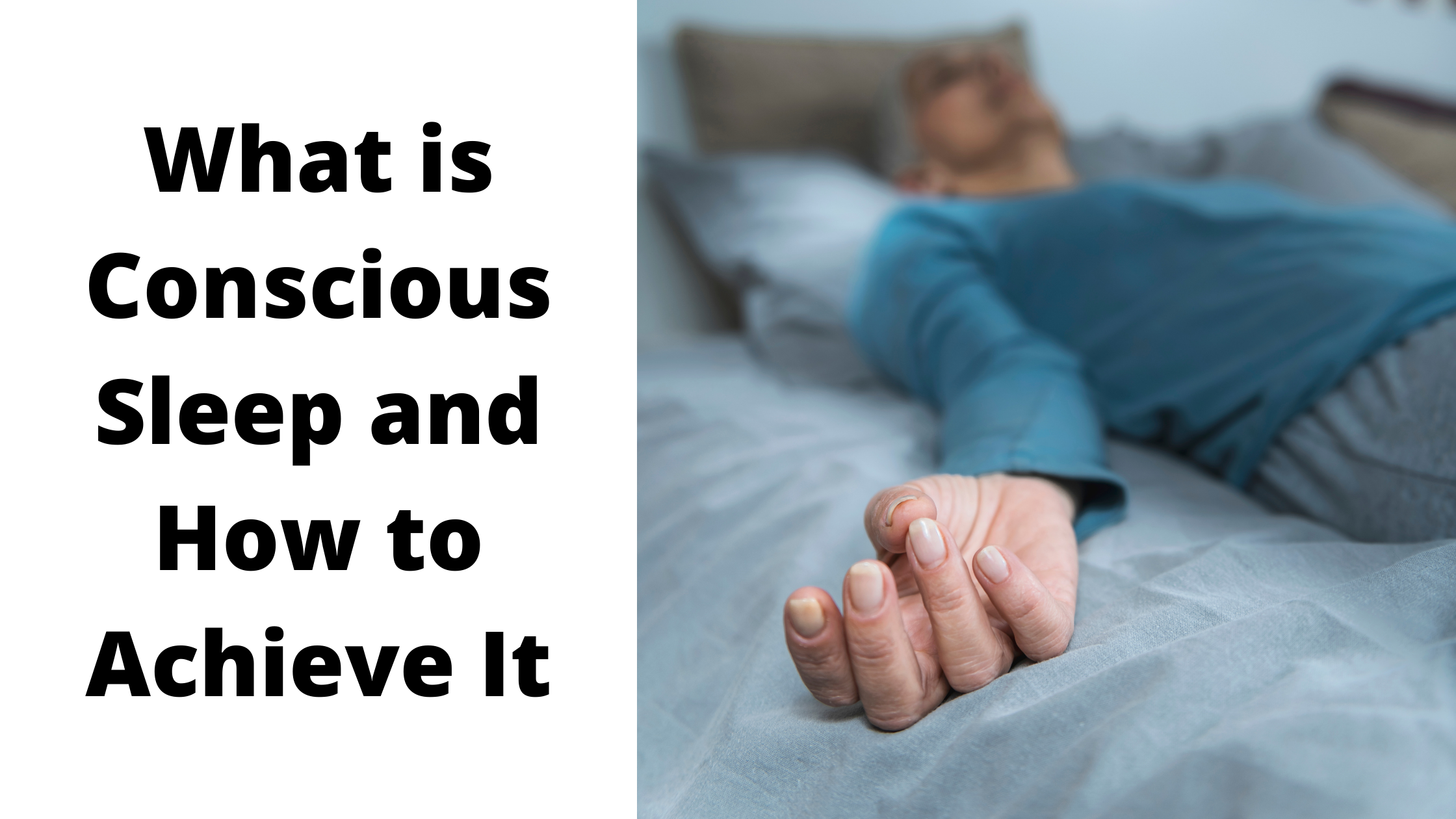
When we are asleep, we are very much under the impression that our minds are completely unconscious. This isn't entirely true as many processes are happening while we are asleep. There is learning, memory formation, growth, and healing.
There is also a state of sleep that we can enter called conscious sleep. It's not very common, and achieving it can be quite difficult. But if can offer some benefits if you're able to do it right. Continue reading to find out more information about what conscious sleep is, how to achieve it, and how it can benefit you.
What is conscious sleep?
Dr. Jacob Teitelbaum, M.D. defines conscious sleep as the ability to be aware of one's self, but not of our bodies, surroundings, or the various stages of sleep. Western scientific studies have focused on this type of sleeping during rapid eye movement, or REM sleep, and how someone can tap into a conscious awareness and dream.
However, this same type of awareness can happen during non-REM sleep as well. Eastern meditation traditions teaches conscious sleep as a way to maintain self-awareness, but without being aware of the body or environment during non-dream sleep.
This concept of conscious sleep was highlighted by Elmer and Alyce Green of the Menninger Foundation in Topeka, Kansas. They partnered with Swami Rama to explore how a person could find themselves in their deepest non-REM sleep, but still have awareness of what was going on around them.
Conscious sleep, from the perspective of a yogi, is a form of deep meditation that teaches individuals how to sustain their meditative state regardless of what is going on around them.
How to achieve conscious sleep?
Jagadish "Jaggi" Vasudev, Indian yoga guru and founder of the Isha Foundation says the key to achieving conscious sleep is to distance yourself from physical nature. This is possible through meditative practice.
Establishing a good sleep hygiene
To improve your odds of reaching this deep state of meditation, Dr. Virginia Blackwell - a sleep expert - says that the first step is a healthy sleep hygiene. This includes making healthy consumption decisions such as no alcohol, caffeine or high carb content. Other things to help include taking a sleep supplement and doing stress-relieving activities to help get you ready for bed.
Great options to relieve stress before bed include taking a bath or shower, reading, playing board games or spending time with your family, and meditating or yoga. One of the most impactful things you can do is turn off your devices and reduce exposure to blue light. Once you get into a good sleep hygiene, you will be able to train your mind to get ready for bed.
Quieting your mind
After you are able to establish a good sleep hygiene, the next important thing is to remove any "psychological clutter" from your mind. This can cause a blockade that prevents you from getting good sleep and connecting with a higher level of self-awareness. By quieting your mind and calming your body, you will be able to enter a deep inner peace and mental state so you can succumb to a complete psychological and physiological reset.
When you are more relaxed, you have more control over your mind and body. This will allow you to be more disciplined in allowing your thoughts to pass as you focus on your breath until you drift into non-REM conscious state of sleep.
Benefits of Conscious Sleep
More research is needed on conscious sleep outside of research pertaining to REM sleep and lucid dreaming, but there are benefits to conscious sleep, according to sleep experts and yogis.
Conscious sleep can be beneficial because it gives you an opportunity to disconnect from your daytime point of view. By truly expanding your awareness of yourself, you can learn to not take things too seriously in life, or get caught up in the anxiety and stressors of menial things throughout the day.
Conscious sleep also provides an opportunity for us to be our best selves. When we are awake and conscious our energies are involved in so many things that we are not very attentive to ourselves and our own needs. But, during conscious sleep, all of our energies are consolidated into focusing on one thing - ourselves. In addition to that, we are still conscious which means we can benefit from this higher level of focus and perform at peak levels.
Bottom Line
Mastering conscious sleep takes a lot of practice and patience, but once it's achieved, it can help us tap into a higher level of functioning and help us feel more rested. More than likely, those without training in meditation may only reach conscious sleep during REM sleep, but that does not mean that it is not worth attemption in order to reach a state of deep meditation and relaxation.
If you would like additional support when trying to sleep, then please click the orange button below to take a free online sleep test and speak with one of our sleep health experts.
https://www.mindbodygreen.com/articles/conscious-sleep

